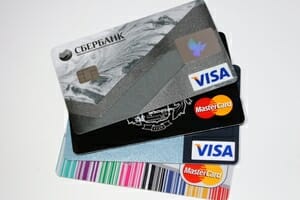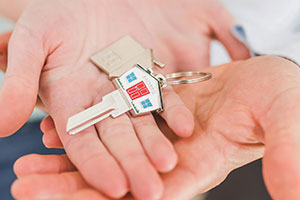
If you’ve declared bankruptcy, you may feel that you never want to see a credit card again, especially if using cards irresponsibly is what got you into financial trouble in the first place. However, getting a credit card after bankruptcy or retaining a current card can be a smart move under certain conditions.
Bankruptcy damages your credit score, and it is important to rebuild it gradually. If you charge only what is necessary and get into the habit of always making on-time credit card payments, it is one of the best ways to rebuild your score. However, before you even apply for a card, there are considerations you need to make so that you can handle credit properly without sinking into more financial difficulty.
The skilled and seasoned Ohio bankruptcy attorneys at Fesenmyer Law Offices, LLC understand that even the most well-intentioned people can find themselves overwhelmed with debt. We offer a free consultation to evaluate your financial situation by looking at your debts, your income, and your goals and coming up with a debt-relief plan that’s best for you. Call one of our conveniently located office branches or contact us online for your free consultation.
Should You Have a Credit Card After Bankruptcy?
Whether it’s better to get or get rid of a credit card after bankruptcy depends a great deal on why you went bankrupt in the first place. If you were overcharging and making just minimum payments on your credit cards, spending more than you took in, and not budgeting or saving for emergencies, you might be better off trashing those cards until you can learn to handle finances differently. This may require working with a credit counselor to create a budget that considers your income, monthly bills, and even savings. Instead of credit cards, you can use a prepaid debit card or one linked to your checking account until you consistently meet your obligations on time without overspending. At that point, you can apply for a credit card again, as long as you use it responsibly and pay off the balance each month.
However, if your bankruptcy was the result of an unforeseen event, such as a medical emergency, divorce, or job loss, rather than due to overcharging and making bad money decisions, you may be ready to have a credit card. Responsible use of your card can help rebuild your credit, as long as the card issuers report your credit activity to at least one of the three major consumer credit bureaus.
Getting Credit Cards
Bankruptcy damages your credit score and stays on your record 7 to 10 years, so getting a credit card after filing bankruptcy can be difficult at first. You must at least wait until your bankruptcy is discharged and this shows on your credit reports before applying for a new credit card.
After discharge, you should pull your credit reports from Equifax, Experian and TransUnion to make sure everything is reported correctly and the accounts included in the bankruptcy show a zero balance on your credit reports. Then you can apply for a new credit card. While some credit card companies may reject your application due to a recent bankruptcy, many will accept you because the bankruptcy wiped out your medical bills, credit card debt, and other unsecured debt, and because they know your risk of filing for bankruptcy again is low.
Options for Credit Cards
After bankruptcy, your options for credit card are limited, and there are some types of cards you should avoid. Types of cards are:
- Unsecured credit cards. These include most major credit cards and department store charge cards. Unsecured credit cards are not secured by anything the card company can take back, so they basically involve borrowing money from the company and paying interest until you pay back the amount you borrowed. Since these are the riskiest cards for a company, it is difficult to get an unsecured card with low interest rates after bankruptcy. The cards available to you are likely to have small credit limits, high fees or interest rates and limited perks, so it’s best to avoid them.
- Secured credit cards. These cards require an upfront deposit, typically between $200 and $1,000, as a guarantee against the card’s line of credit. Your credit limit will be a percentage of your deposit, ranging from 50 to 120 percent. When you make payments on these types of credit cards, they will be reported to major credit bureaus and help rebuild your credit. These cards typically have higher interest rates, so be sure to use them responsibly, charging no more than 30% of the credit limit and paying off the balance each month in full. Some lenders will return the security deposit if you made timely payments over a long period, and will convert the card to an unsecured one.
- Prepaid Credit Cards. These are actually debit cards, and using them will not help you improve your credit score, as they are not reported to the credit bureaus. Still, they can help you stick to your budget by allowing you to load money onto the card that you can use until you load more.
Contact Us and Get Help
If you find yourself struggling with credit card or any other debt, take the first step toward relief by contacting the seasoned and compassionate Ohio debt-relief attorneys at Fesenmyer Law Offices, LLC. We offer a free initial consultation to evaluate your entire financial situation and determine the best fit for your particular circumstances. We will make sure you are aware of all your options and help you decide on the path to a brighter future that makes sense in your individual case. We will walk you through the process every step of the way.
Delaying can only worsen your situation, so call one of our conveniently located office branches or email for your free consultation so we can determine what debt relief solutions will work best for you.


